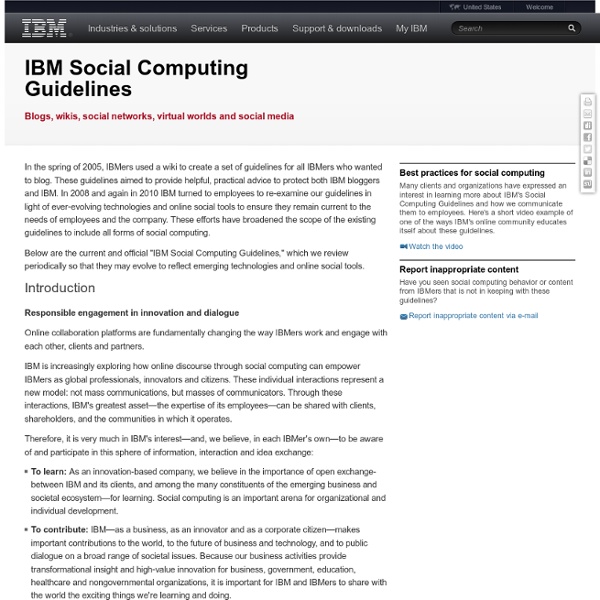Done - Social Computing Guidelines

Done - SA Govt socialmedia_guidelines.pdf (application/pdf Object)
Done-Social Media Policy
Web Publishing Branch Policy Number: PCY10/061 Approved: December 2012 Next Review: December 2014 This work is licensed under a Creative Commons Attribution 3.0 Australia licence Policy Owner: Web Publishing Branch Document History 1. Context The National Library of Australia embraces the use of social media for the promotion, development and delivery of services and the collection as outlined in the Social Media Strategy. The Library encourages all employees to communicate online in many ways, such as through social media, professional networking sites, blogs, online news sites and personal web sites. This policy applies to all Library employees using or having a need to participate in online social media activity for official Library communications and through personal accounts which they have created and administer themselves. 2. This policy is intended to provide clarity to Library employees on how to conduct themselves in social media. 3. social networking sites, e.g. 4. 5. 6. 7. 8. 9.
Done - Social Media Engagement Policy
Purpose The purpose of this document is to provide a set of simple guiding principles for engaging in communications via social media channels. This policy will ensure that all State Records staff members, volunteers, contractors and consultants understand their responsibilities when engaging externally with other organisations, forums and individuals using online engagement tools or “social media Definition The term “social media” includes online discussions, blogging, Wiki entries, Twitter posts, etc. Scope This Policy applies to all State Records staff, volunteers, contractors and consultants who may as part of their prescribed duties at State Records undertake interactions via social media that in some way can be seen as representing State Records. Background The evolution of the Internet, the Worldwide Web, Web 2.0 and beyond, has opened up a new paradigm in social and cultural collaboration. Policy statement When engaging via social media you need to keep in mind five key principles.
Related:
Related:



